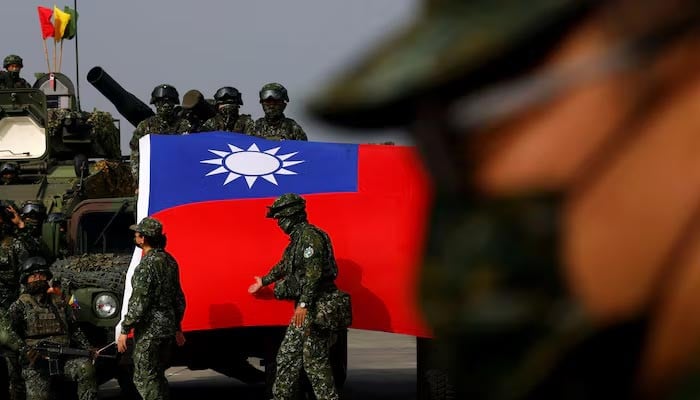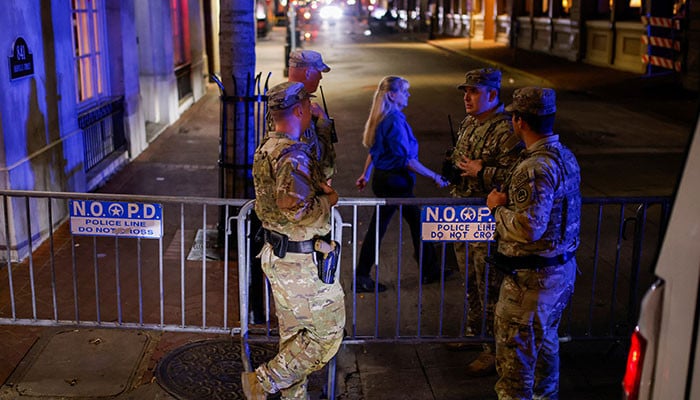Health
A city in peril
字号+ Author:Smart News Source:Health 2025-01-13 06:28:03 I want to comment(0)
CITIES are an integral part of history and one of the most complex creations of mankind. The architecture of a city is the main tangible evidence of man’s intellectual and cultural journey through the past — and Lahore, indeed, is a city where history, art and culture have been woven seamlessly into the lives of its people. Unfortunately, the Lahore we know today seems to be stifled by an unrelenting haze of pollution, neglect, and indifference. The city gasps for breath, choked by a thick blanket of smog that descends every winter, suffocating its citizens. Pollution is no longer just an inconvenience; it is a health emergency, a manmade catastrophe, fuelled by political apathy, regulatory failure, and unchecked urbanisation. Imposing illogical bans on people’s livelihoods is hardly a solution (in case anyone important enough to take action has stumbled upon this piece). The issue goes far beyond the present crisis. It dates to years of neglect — when activities endangering the environment should have been monitored, when the looming ‘environmental crisis’ should have been treated with urgency, and when there was still time to reverse the damage caused by the misdoings and sheer failures of those in charge. Instead, here we are, tangled in the noise of daily politics, fixated on power struggles, prejudiced rivalries, and judicial controversies, while the people of Lahore are left to suffer and quite literally, suffocate. Lahore gasps for breath, choked by a thick blanket of smog. It’s truly baffling that individuals occupying high-ranking positions — armed with degrees from prestigious universities and boasting decades of supposed experience — believe they are entitled to those seats, no matter how they were secured: through manipulation, deception, or outright disregard for the public. And yet, despite their credentials and claims of competence, the issues of environmental security are dismissed as unworthy of attention. As disappointing as it is, the mindset, cultural blind spots, and self-serving incompetence of the country’s policymakers leave them incapable of understanding the severity of the crisis. But of course, priorities are clear — why focus on the suffocating air millions are forced to breathe when a quick trip to the UK for a throat infection is much more pressing? Meanwhile, the rest of us? Well, we can continue to suffer. It comes as no surprise to anyone paying attention that environmental degradation has long been the price of so-called development in Pakistan. Successive governments have mastered the art of crafting policies full of promises and impressive jargon, yet the gap between these declarations and implementation is staggering. Take, for instance, the National Environmental Policy 2005, seen as a comprehensive blueprint to tackle environmental challenges at the time. It now gathers dust, undermined by a lack of enforcement and funding, and an even greater lack of political will. Meanwhile, malpractice continues to thrive in the agriculture, food and water sectors, continuing to expose people to toxic chemicals and creating health crises that remain unaddressed. Like I said, if one is to examine the country’s environmental and climate change efforts diligently, a disheartening pattern emerges: policies churned out over the years like clockwork, each signalled as a breakthrough, but backed by little practical action. We seem stuck in an endless cycle of announcements and photo ops, while the air we continue to breathe, grows increasingly poisonous, and is unfit for life. Where does the blame lie? It’s tempting to point fingers in every possible direction — inept policymakers, uninterested administrations, and industries run- ning wild — but the vacuum of accountability looms largest. In this void, the judiciary often steps in, attempting to address environmental crises through public interest litigation. But let’s be honest — judicial intervention is a stopgap, not a long-term solution, which is what is required from the government. The judiciary can issue directives and develop laws, but without political will to enforce them, they are little more than mere words on paper. And as the air continues to thicken with smog and indifference, we’re only left to wonder: is it too much to hope for leaders who prioritise lives over optics? Or perhaps this is the reality we must accept: in the grant hierarchy of priorities, the survival of a city and its people will always come second to the persistent pursuit of power. For now, the sun is out and I’d like to soak it all in — who knows, when we’ll get to see it again. My humble advice: do the same while you still can, and demand that those responsible for this crisis finally take action before it’s too late.
1.This site adheres to industry standards, and any reposted articles will clearly indicate the author and source;
 Related Articles
Related Articles-
Two men gunned down after court appearance
2025-01-13 06:11
-
Saim Ayub suffers ankle injury during second South Africa Test
2025-01-13 05:36
-
Second Test: Rickelton, Bavuma stabilise South Africa at 316/4 on day 1
2025-01-13 05:01
-
Saim Ayub suffers ankle injury during second South Africa Test
2025-01-13 04:04
 User Reviews
User Reviews Recommended Reads
Recommended Reads Hot Information
Hot Information- 2 killed in Israeli attacks on southern Lebanon
- Ravi Shastri anticipates Rohit Sharma’s Test cricket exit
- Rickelton’s double ton powers South Africa to 429-5 against Pakistan
- Rickelton’s double ton powers South Africa to 429-5 against Pakistan
- Israel hit a ‘component in Iran’s N-plan’ last month: PM
- Rickelton’s double ton powers South Africa to 429-5 against Pakistan
- Second Test: Rickelton, Bavuma stabilise South Africa at 316/4 on day 1
- Rickelton’s double ton powers South Africa to 429-5 against Pakistan
- IHC grants Imran bail in new Toshakhana case as govt rules out release
 Abont US
Abont US
Follow our WhatasApp account to stay updated with the latest exciting content













